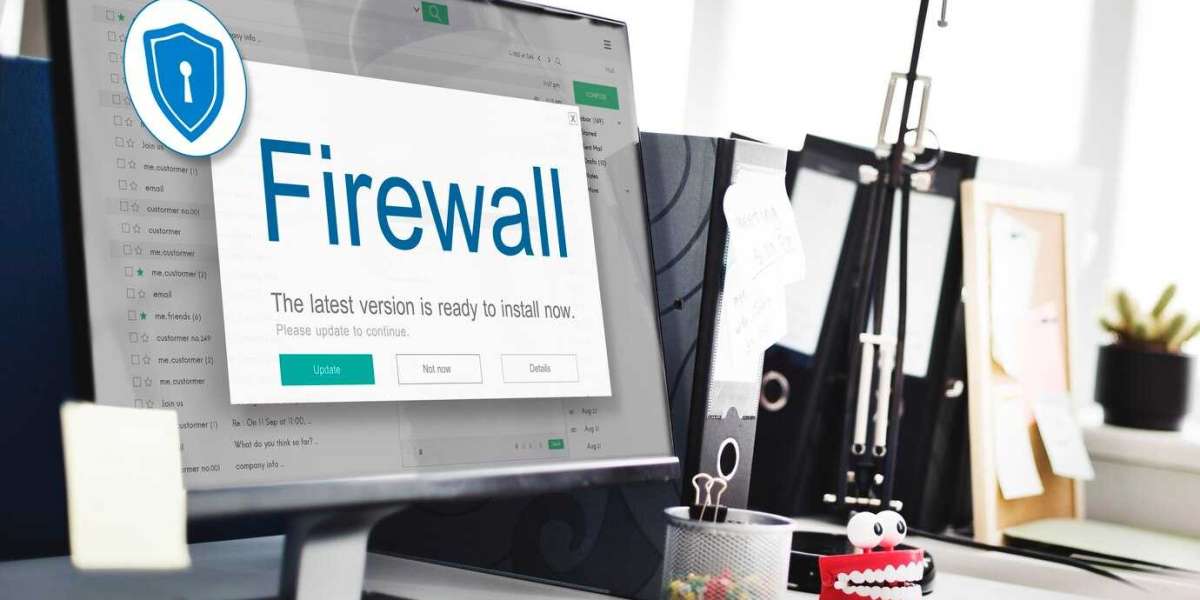In today’s digital world, cybersecurity is more important than ever. With an increasing number of cyberattacks, hackers, and malicious software targeting businesses and individuals alike, it’s crucial to take the right steps to protect sensitive data. One of the most essential tools in any cybersecurity strategy is the firewall. Whether you're just starting to learn about cybersecurity or you’re pursuing a Certificate IV in Cyber Security, understanding how firewalls work can help you protect your network and prevent unauthorized access.
What is a Firewall?
A firewall is a network security system that monitors and controls incoming and outgoing network traffic based on predetermined security rules. It acts as a barrier between your internal network and external threats from the internet. Firewalls are designed to allow legitimate traffic while blocking malicious traffic such as viruses, worms, or hackers trying to exploit vulnerabilities in your system.
There are two main types of firewalls:
Hardware Firewalls: These are physical devices that sit between your network and the internet. They offer a high level of protection because they filter traffic before it enters your network.
Software Firewalls: These are programs installed on a computer or server. They monitor and control the traffic based on the set rules. Software firewalls are useful for individual devices or small networks.
Both types of firewalls are crucial for protecting your devices and data from cyber threats. They act as a gatekeeper, allowing only trusted connections and blocking harmful ones.
How Do Firewalls Work?
Firewalls work by using a set of predefined rules that filter network traffic. These rules are based on the following factors:
IP Addresses: Firewalls can block or allow traffic from specific IP addresses. If a hacker is trying to access your system from a known malicious IP address, the firewall can block it.
Ports and Protocols: Firewalls can monitor and control the types of communication allowed through certain ports. For instance, HTTP traffic (web browsing) typically runs on port 80, while secure communication (HTTPS) runs on port 443. Firewalls can block traffic to unwanted ports that could be vulnerable to attacks.
Packet Inspection: Firewalls examine the data packets sent over the network. If a packet matches a harmful pattern or behavior, the firewall will block it.
Stateful Inspection: Modern firewalls use stateful inspection, which monitors the state of active connections. This ensures that only legitimate traffic, part of an ongoing communication session, is allowed.
Why Are Firewalls Important in Cybersecurity?
Blocking Unauthorized Access: Firewalls help prevent unauthorized access to your network by filtering traffic. They block hackers or malicious software from exploiting vulnerabilities in your system.
Protecting Sensitive Data: Firewalls prevent sensitive information such as passwords, financial data, and personal details from being intercepted by cybercriminals. With a firewall in place, you reduce the chances of a data breach.
Preventing Malware Infections: Firewalls can detect and block malware trying to enter your system. By filtering out malicious traffic, they help protect your devices from viruses, ransomware, and other types of harmful software.
Control Over Network Traffic: With a firewall, you can control the flow of traffic into and out of your network. This allows you to block traffic from untrusted sources and ensure only authorized traffic is allowed, helping you secure your online presence.
Monitoring Network Activity: Firewalls also act as monitoring tools, keeping track of network activity. By analyzing traffic patterns, firewalls can alert you to suspicious behavior that could indicate an attempted cyberattack.
Firewalls and Cybersecurity Strategies
While firewalls are essential, they should not be the only line of defense in your cybersecurity strategy. It’s important to combine firewalls with other security measures, such as:
Antivirus Software: Firewalls protect against unauthorized access, while antivirus software detects and removes malicious software.
Encryption: Encrypting data adds an additional layer of security, ensuring that even if someone bypasses the firewall, they cannot read your sensitive information.
Strong Passwords: Using strong, unique passwords for all accounts and devices can help keep unauthorized users from gaining access.
Regular Software Updates: Keeping your software and systems up to date ensures that known vulnerabilities are patched and your firewall can continue to protect you from emerging threats.
Choosing the Right Firewall for Your Needs
When selecting a firewall, it’s important to consider the size and complexity of your network. For small businesses or individuals, a software firewall might be sufficient. However, for larger organizations with multiple devices and a complex network, a hardware firewall or a combination of both may be necessary.
Make sure to choose a firewall that offers:
- Easy configuration and management
- Real-time monitoring and alerts
- Regular updates to stay ahead of new threats
- Scalability for future needs
If you’re interested in pursuing a career in cybersecurity, gaining hands-on experience with firewalls and other security tools can be a great way to start. Enrolling in a Certificate IV in Cyber Security course will give you the knowledge and skills you need to understand, configure, and manage firewalls, as well as other essential security technologies.
Conclusion
In conclusion, firewalls play a crucial role in protecting your network and data from cyber threats. They act as a barrier, blocking malicious traffic and ensuring that only trusted connections are allowed. Whether you’re a small business owner or an individual, using a firewall is an essential step in securing your digital assets. Combining firewalls with other cybersecurity measures such as antivirus software, encryption, and strong passwords will help build a robust defense against online threats. If you’re looking to enhance your cybersecurity skills, investing in education like a Certificate IV in Cyber Security can set you on the path to mastering these essential tools and keeping your digital life safe.











